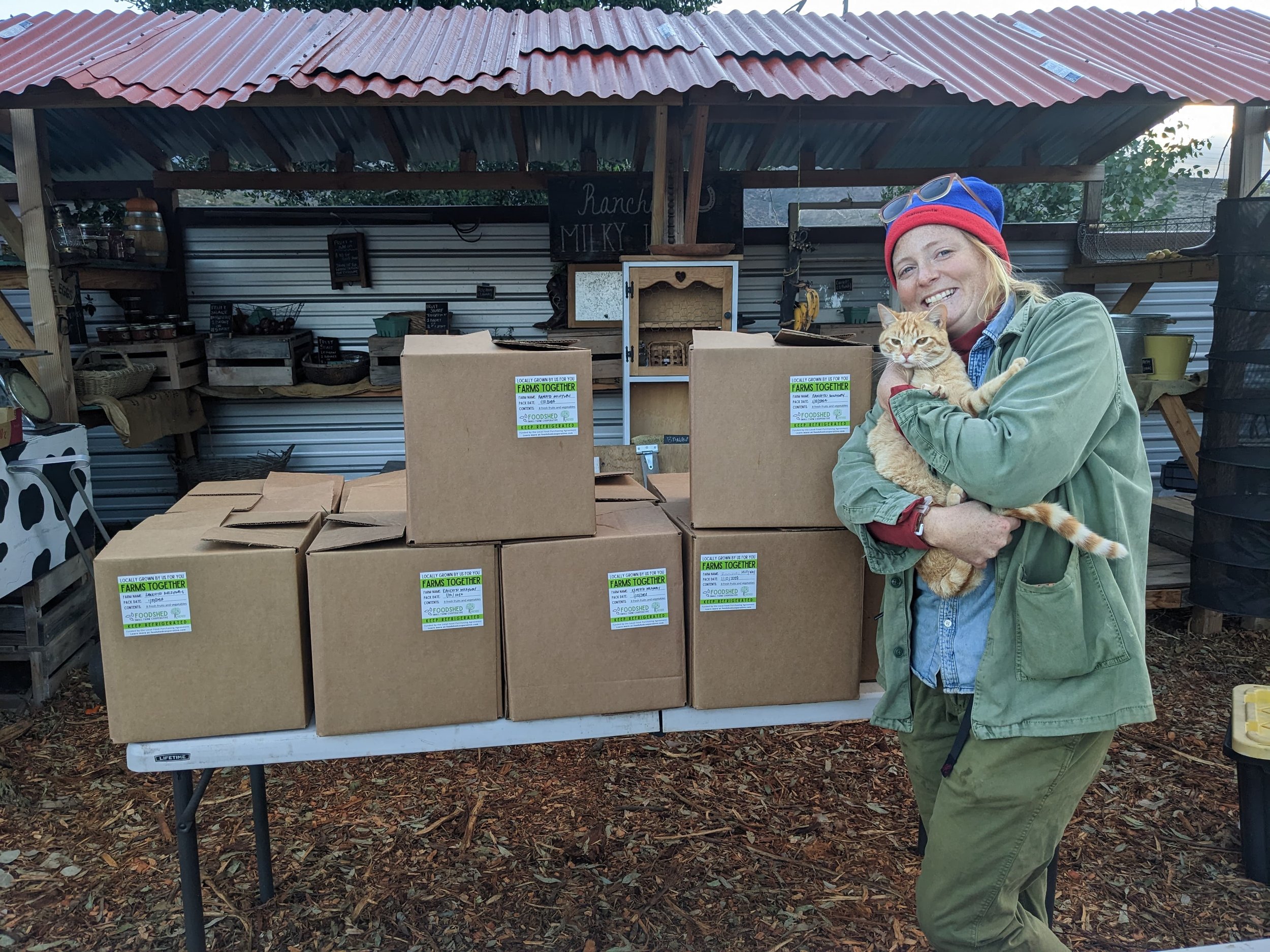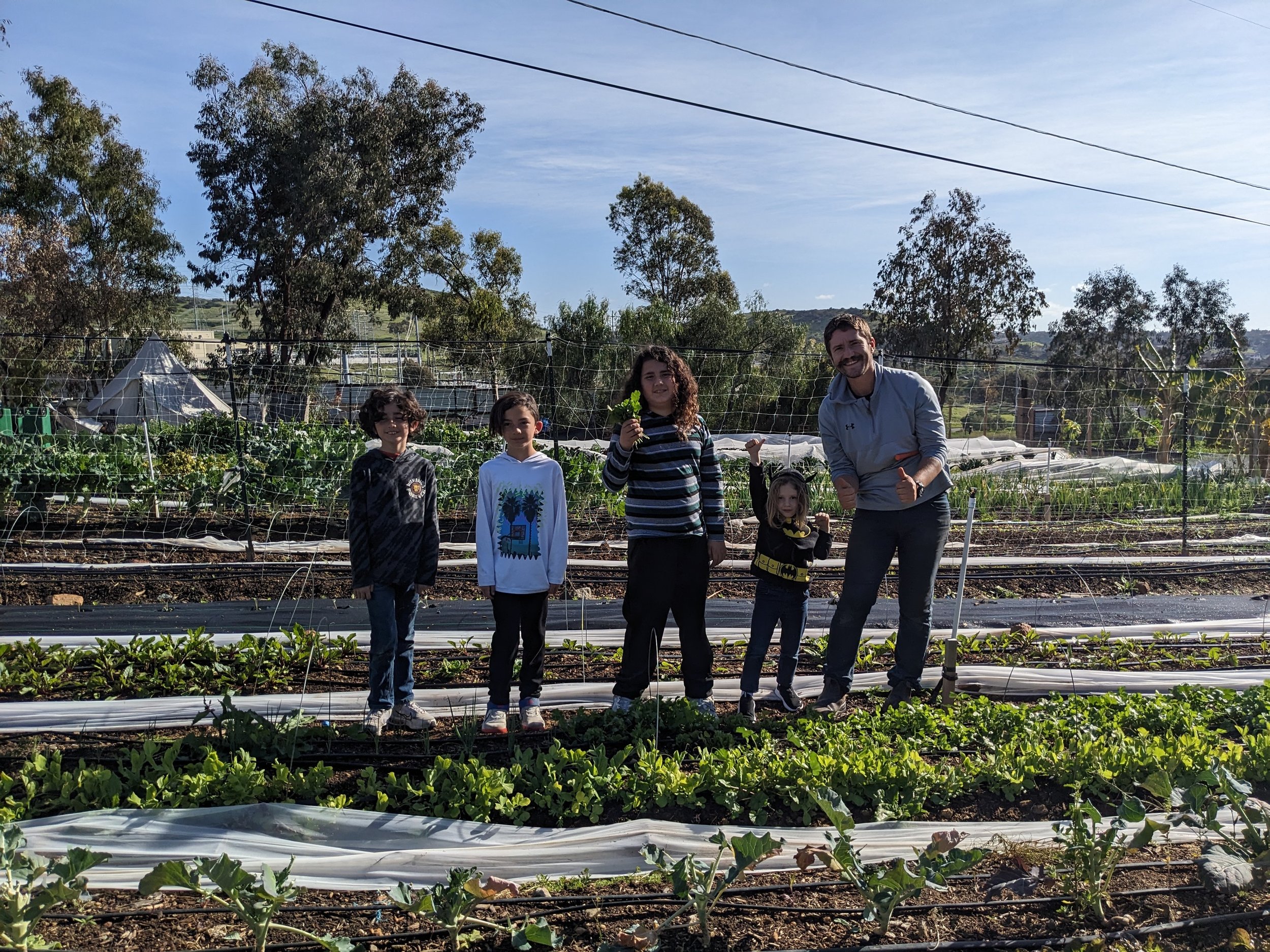Meet the Farmers of Ranchito Milkyway
Alyssa and Christian started Ranchito Milkyway in 2021, after realizing that life is too short to do anything but what the world needs. Seeing food grow has changed both Alyssa and Christian, creating some type of wholeness they hadn’t known was missing.
They started the farm knowing they’d need three things:
Connection. They knew they wanted to to connect people to their food, where it grows, and who grows it. Seeing your food grow is more than supporting local, it’s a connection that keeps your grounded, reminds you that you rely on the Earth and you are a part of a much bigger circle of life.
Local. They’d need to stay as local to the city as possible. To connect people would mean the farm had to be nearby enough to convince their family, friends, and future customers to pick up their veggies and see the farm every week.
Regenerative. The farming practices needed to make sense. For Christian and Alyssa, farming makes sense when it is regenerative, when it is working with nature, and when it doesn’t use chemical fertilizers and pesticides.
They have found their paradise at Ranchito Milkyway, where they now grow delicious vegetables and set up their farm stand on Sundays for members to come by for their veggies. They find joy in getting to know each customer, and have discovered that the weekly connection they make with their customers has provided them with almost as much change in their life as growing vegetables initially did.
Our Farming Tenets at Ranchito Milkyway
Tasty Veggies
No sense in growing food if it isn’t absolutely delicious! We prioritize growing varieties that are super tasty and that will inspire you to eat healthy and dare we hope you crave your veggies. When we can, we choose the colorful varieties too- hoping to add some color to your plate!
We like to share recipes with customers, especially when customers have shared that recipe with us! With so many people using the same ingredients in different kitchens, we get a lot of variety from simple ingredients.
We’ve even heard from a few members that are parents that they’ve found their kids are starting to like vegetables, and even eat the kale.. raw! :)
Farming with the Earth in Mind
Definitions get messy, you can call us “organic”, “regenerative” and more, but when it comes down to it we do what is right for the soil and for the planet.
For example, “organic” has a lot of meanings, so we can share what it means to us. When we say organic, we mean that we won’t be using any chemical fertilizers or pesticides.
The fertilizers we do use mostly come from local sources- like manures and compost. Eventually, we hope to make all of our own fertilizers (hey, kelp fertilizer should be local here in San Diego!)
By choosing the no-till system, we hope to increase plant health naturally, decreasing our need for pesticides in the first place. In addition, we make most of our own natural pesticides and use only organic-certified pesticides when absolutely necessary.
One practice we use is No-Till farming. It means what you can imagine- we don’t ever till the land. Tilling is a method of farming that chops up the soil before planting. That chopping also destroys the fungal network that helps plants receive nutrients from the soil.
By choosing no-till, we hope to be growing the underground fungal networks and therefore optimizing the health of our plants. This helps us use fewer inputs (like fertilizers) overall and grow nutrient-dense veggies.
No-till is a lot of work to set up (and that’s why it’s not commonly chosen for large-scale agriculture). For us it means laboriously working the land with a broad fork to open up the soil without tilling it up, digging the pathways, and adding lots of organic matter to loosen the soil over time.
We filter the water we use on the plants. City water is treated with chemicals that kill harmful bacteria (thank you, CIty!) but chlorine and chloramine are still in that water when it gets to us, and we remove that so the healthy bacteria and fungi in the soil are able to thrive.
Waste Is Evil
Alyssa’s dad used to ask his daughters “What is waste?” and they had to reply “Waste is evil” (likely in a monotone voice as that would make their dad chuckle).
We do our best to waste nothing and source most materials second-hand if not from the dumpster itself.
Time is a resource we can’t bear to waste. That’s why we want to spend our time growing healthy food, chit-chatting with the people we love, and caring for planet earth.
Food2Soil Compost
Food2Soil is a local decentralized composting collective diverting food scraps from landfill and turning them into nutrient-rich compost. We use this compost in our soil to promote a diverse soil ecosystem.
At Food2Soil we receive scraps that are generated as locally as possible and that would have otherwise gone to the landfill. Knowing we are transforming local food scraps into local food makes us happy. Because you know the answer to the question.. What is waste?














